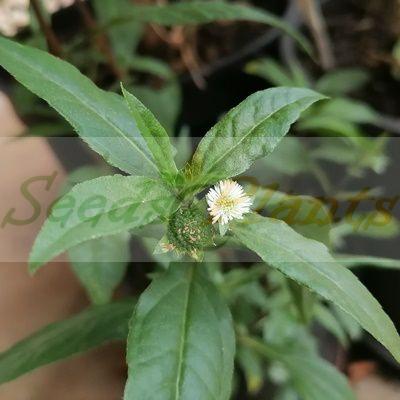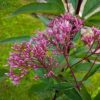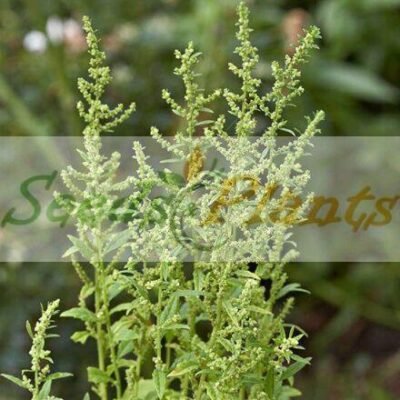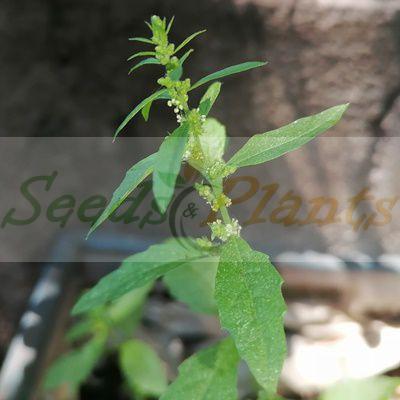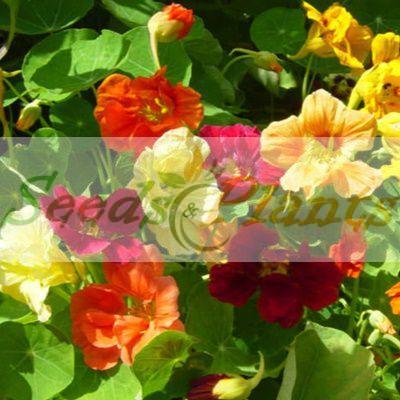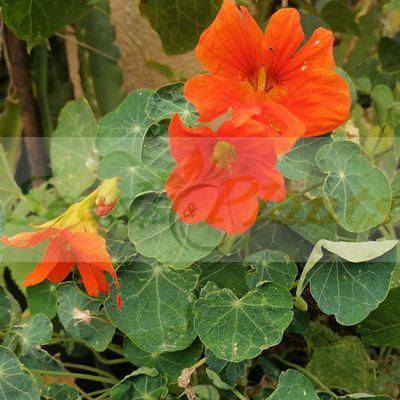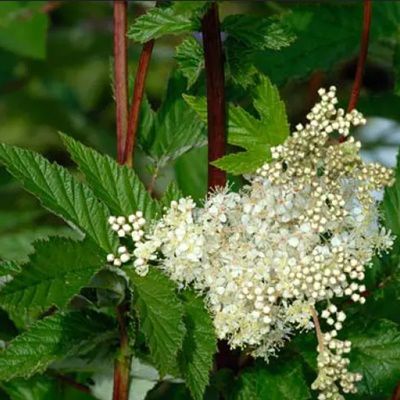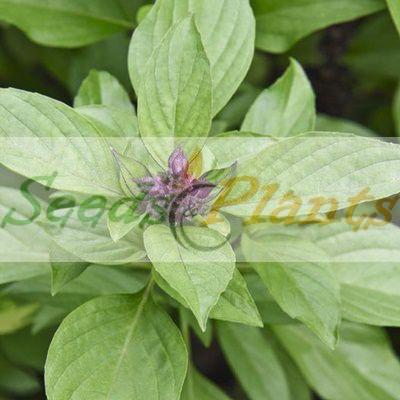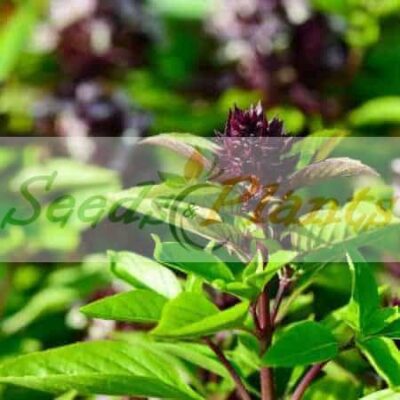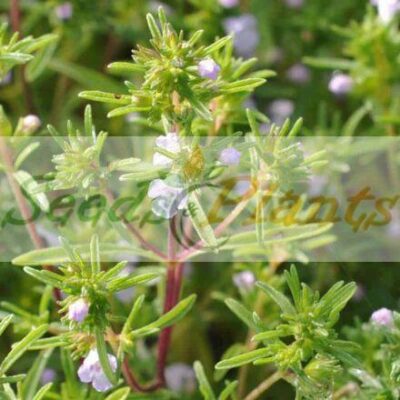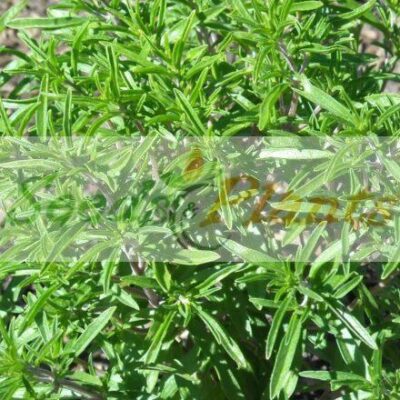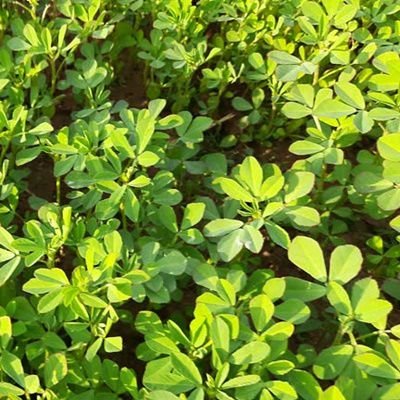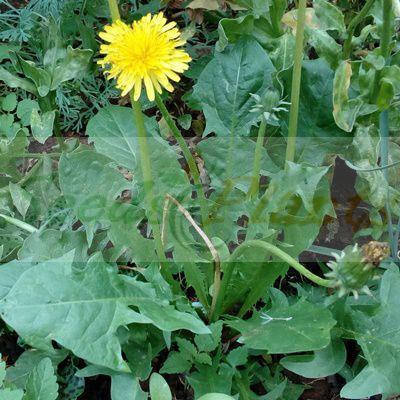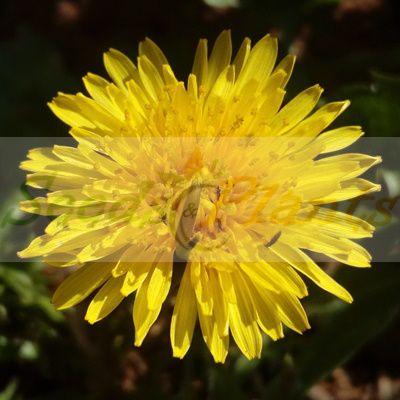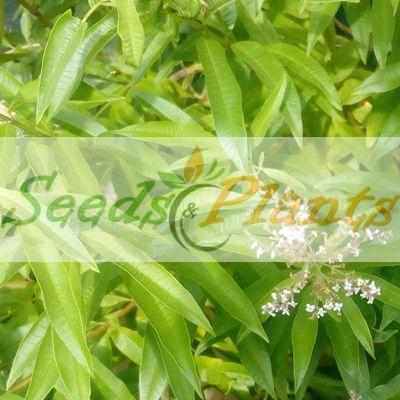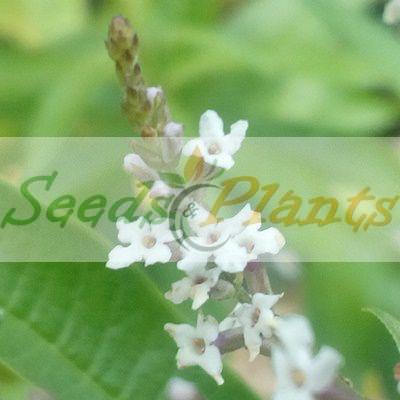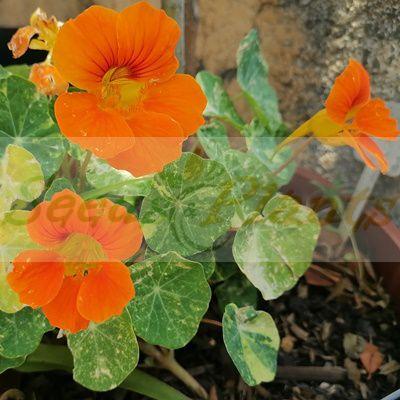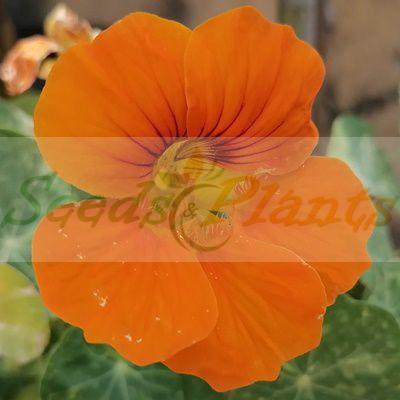🍃 Culinary Quick Facts
Culinary Info
- 🌍 Origin / Region: Central America, South America
- 🍽️ Culinary Use: Beverages/Teas, Cooking, Flavoring, Garnish, Seasoning, Soups and Stews
- 🥗 Edible Part: Leaf
- 😋 Flavor Profile: Anise-like, Citrusy, Minty, Pungent
Medicinal Info
- 🌿 Medicinal Part: Flower, Leaf, Root
- 🍵 Herbal Preparation: Decoction, Essential Oil, Infusion / Tea, Paste, Powder
- ⚕️ Healing System: American Traditional Medicine
Growth Traits
- 🌱 Life Cycle: Perennial
- 🌾 Plant Type: Herbaceous Perennial
- 🦋 Pollinator Method: Attracts Wasps
- 🪴 Growth Habit: Fast Growing, Upright
- 🌸 Flower Color: Green, Yellow-green
Growing Requirements
- 🌞 Sun Exposure: Full Sun
- 💧 Water Needs: Avoid Overwatering, Regular Water
- ☀️ Growing Conditions: Drought Tolerant, Frost Sensitive, Heat Tolerant, Moderate Cold Tolerance
- 🟤 Soil Preference: Light, Sandy loam, Tolerant of most soils, Well-Drained
Epazote – 50 Seeds
(Dysphania ambrosioides)
R30.00
Epazote plants have a long history of both culinary and medicinal use.
Common Names: Jesuit’s tea, Mexican-tea, payqu (paico), epazote, mastruz and herba sanctæ Mariæ.
Indoor Sowing: Early Spring.
Direct Sowing: Spring.
Out of Stock
Email me when the product is back in stock.
🍃 Culinary Quick Facts
Culinary Info
- 🌍 Origin / Region: Central America, South America
- 🍽️ Culinary Use: Beverages/Teas, Cooking, Flavoring, Garnish, Seasoning, Soups and Stews
- 🥗 Edible Part: Leaf
- 😋 Flavor Profile: Anise-like, Citrusy, Minty, Pungent
Medicinal Info
- 🌿 Medicinal Part: Flower, Leaf, Root
- 🍵 Herbal Preparation: Decoction, Essential Oil, Infusion / Tea, Paste, Powder
- ⚕️ Healing System: American Traditional Medicine
Growth Traits
- 🌱 Life Cycle: Perennial
- 🌾 Plant Type: Herbaceous Perennial
- 🦋 Pollinator Method: Attracts Wasps
- 🪴 Growth Habit: Fast Growing, Upright
- 🌸 Flower Color: Green, Yellow-green
Growing Requirements
- 🌞 Sun Exposure: Full Sun
- 💧 Water Needs: Avoid Overwatering, Regular Water
- ☀️ Growing Conditions: Drought Tolerant, Frost Sensitive, Heat Tolerant, Moderate Cold Tolerance
- 🟤 Soil Preference: Light, Sandy loam, Tolerant of most soils, Well-Drained
Epazote Seeds. Dysphania ambrosioides, formerly Chenopodium ambrosioides, known as Jesuit’s tea, Mexican-tea, payqu (paico), epazote, mastruz, or herba sanctæ Mariæ, is an annual or short-lived perennial herb native to Central America, South America, and southern Mexico. The plant is annual in colder climates and a perennial in warmer areas.
The plant produces long, serrated leaves and emits a fairly strong, kerosene-like odor. It produces small, pale yellow-greenish flowers. Epazote plants have a long history of both culinary and medicinal use.
Epazote has a pungent flavor and is described as having notes of oregano, anise, citrus, mint, and even tar or creosote. The most flavor is provided by the fresh leaves and stems, and older leaves have a stronger flavor. The herb is added to dishes near the end of cooking.
Epazote Culinary Uses
- Epazote is used as a leaf vegetable and herb for its pungent flavor.
- Raw, it has a resinous, medicinal pungency, a bit like the liquorice taste of anise, fennel, or even tarragon, but stronger.
- Epazote’s fragrance is strong, but difficult to describe. People would often compare it with citrus, petroleum, savory, mint or putty.
- Both the fresh leaves and tender stems are used in cooking.
- It is commonly used in the cuisines of central and southern Mexico and Guatemala.
- While it is best to use fresh Epazote, the dried form can be used if no fresh herbs are available.
- As an herb, it is suitable for gluten-free, vegan, vegetarian, and paleo diets.
- Epazote is used to flavor black beans, soups, quesadillas, potatoes, enchiladas, tamales and eggs.
- It has a distinct flavor that some even call a cross between pepper and mint.
- Young leaves have a mild flavor.
CAUTION: The Epazote seeds and oil is toxic and should never be ingested. Women who are pregnant or nursing should avoid using even the leaves of this herb.
Epazote Medicinal Benefits
- The leaves used in cooking counter indigestion and flatulence when combined with beans or any fiber or protein rich foods.
- This herb is used in traditional medicine in the form of teas, poultices, and infusions for inflammatory problems, contusions, and lung infections, and as purgative, analgesic, as a vermifuge to expel round-worms and hook-worms, and as an antifungal.
- The leaves contain many monoterpene compounds including ascaridole (a colorless liquid with a pungent smell) which is toxic to intestinal worms such as roundworm, hookworms and pinworms.
- It is also used in the treatment of amenorrhea , dysmenorrhea, malaria, chorea, hysteria, expectorant, catarrh, and asthma.
CAUTION: The Epazote seeds and oil is toxic and should never be ingested. Women who are pregnant or nursing should avoid using even the leaves of this herb.
Growing Epazote
Indoor Sowing: Early Spring.
Direct Sowing: Spring.
- You can sow the seeds indoors in early spring, or sow directly outdoors when the soil has warmed up.
- Surface sow the seeds and barely cover with a thin layer of soil.
- Keep the soil moist until germination occurs.
- Maintain a soil temperature of 21°C for optimal germination
- Germination in about 14 days.
- Thin outdoor-sown plants to six inches apart.
- It grows best in full sun, in well draining soil.
- The plant is drought resistant and prefers dry weather with a medium amount of water.
- Pruning will encourage more branching and therefore more leaf growth.
- Growing in containers is recommended as Epazote reseeds readily.
Can this plant be used for culinary purposes?
Epazote is traditionally used for culinary purposes such as beverages/teas and cooking.
Does this plant have medicinal uses?
Traditionally, Epazote has a history of use in American Traditional Medicine. Seeds are sold for cultivation purposes only.
Disclaimer
Medicinal Information:
All medicinal information on this website is for educational and informational purposes only and may not be construed as medical advice. The information is not intended to replace medical advice or treatment offered by healthcare professionals.
Seeds, Plants, Plant Cuttings, Geophytes and Dried Herbs:
In some countries and provinces, certain plants are deemed as invasive and are not allowed to be planted at all, whilst some plants are allowed to be grown only in certain areas or provinces. The onus is on you as the buyer to familiarize yourself with the regulations pertaining to your location, before purchasing any of our seeds, plants, plant cuttings, geophytes or dried herbs. We will not be held liable, should you purchase any seeds, plants, plant cuttings, geophytes or dried herbs. from us which are prohibited in your country or province.

